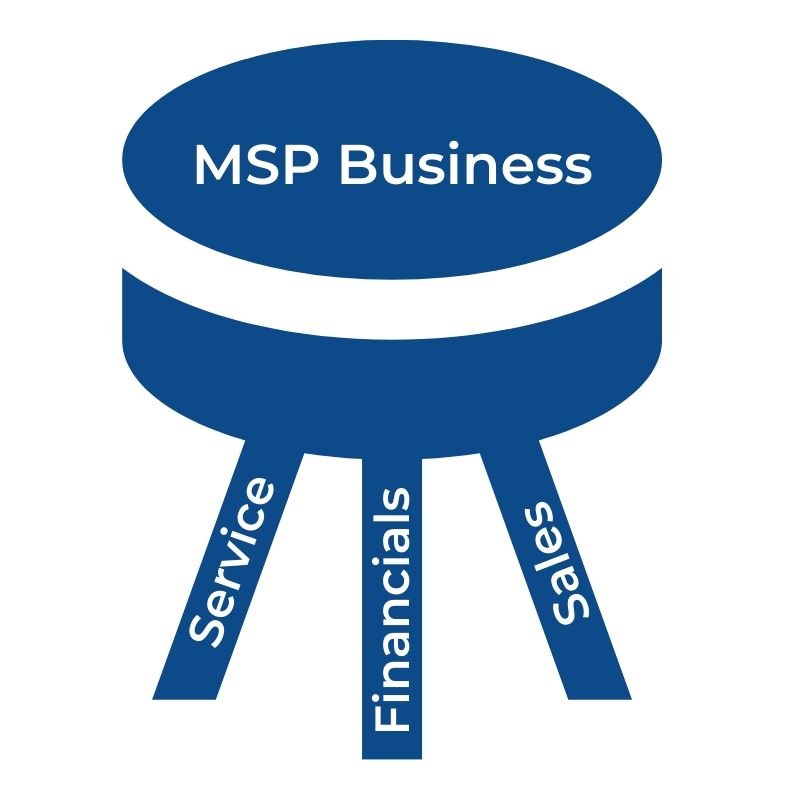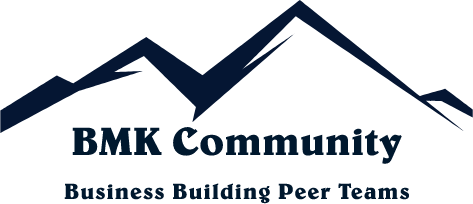What makes business ownership so complicated – in good or bad times – is the fact that as an owner, you are continually moving between tactical and strategic roles. One moment you’re casting vision, building processes, and overseeing daily operations. The next moment, you might be answering the phones, fielding a service question, or playing the role of lead sales engineer on an important sale. Your day often begins with a list of email to do’s and ends long after sunset.
Many MSP business leaders are working hard to keep operations, service, and sales chugging along in the same direction. What they don’t often have time to do is ask a set of nagging questions that probably have kept you awake at night:
- How is my business really doing?
- What are my financials really telling me about my business?
- Am I running the business, right? What am I doing wrong?
- Why can’t I get my salespeople (or person) to follow the sales process?
- How can I get my service team to accurately enter tickets and follow-through consistently?
- How do I measure performance (better)?
- What are my numbers really telling me?
- What do I need to do to be able to take a vacation that does not include troubleshooting work issues on the side?
Staring Down the Rabbit Hole of Business Ownership
Like many MSP leaders, we struggle to know what to do next. We know we need to do something but can often be unsure of where to being or simply find ourselves staring down a rabbit hole.
As a multi-business owner and Bering McKinley Management Consultant, I have spent my career playing many of the roles of a business owner. I began my career in a large Fortune 500 IT firm and ventured out on my own in 2009 and selling my IT firm in 2018. I also served in roles of lead acquisition integration, sales management, service development along with other leadership activities. My road was bumpy and spotted with rabbit holes that often left me wondering which path to take at different times in our IT firm’s growth.
For example, what worked for our organization at $1-3 million looked completely different at $8Mil and then at $15Mil. More than once, we felt trapped in the same revenue pattern trying to figure out how to identify the gaps and make changes that would lead to better sales, more profitable service delivery, and (most importantly) a work/lifestyle balance.
This is where a Business Performance Assessment changed our trajectory.
Three Legs of an MSP Business
Your business runs optimally as a 3-legged stool. All three legs must be present, the same length, and structurally sound for the stool to work properly and be safe for use. Each leg has a story to tell.
How stable is your stool? Ask yourself the following questions:

- How well does your service delivery model stack-up to better than industry standards?
- Do you Agreements Gross Profitability exceed 65%?
- Does the Service Department Gross Profitability exceed 55%?
- Is your PSA (like ConnectWise) configured properly to provide accurate rates, charge codes, and service board queues?
- Are your dispatching and service staff certified and entering ticket and customer data consistently and accurately to hit revenue targets?
- Does the billable staff meet the 4.5 X hourly wage criteria?
- What is the litmus test of your administrative and financial health?
- Do you understand what your numbers are telling you? Do you have a “realistic view” of your performance?
- Can you provide prior years of Profit & Loss data and understand where change needs to be made?
- Have you mastered the four most important metrics that impact your bottom line, or are you flying blind? (hint: Agreement Gross Profitability, Effective Hourly Rate, Service Salaries relative to Service Revenue, and Service Department Gross Profitability.)
- How does marketing & sales Impact (or not impact) your revenue goals?
- Are you attracting the best sales candidates (constantly – yes, it must constantly happen), or are you hiring poor performers and losing the good ones quickly?
- Are you having to jump in to save the sale?
- Do you have established quotas and commissions that reflect revenue goals?
Of course, these are just a few of the questions that, if understood, can immediately improve the business. This is why a business performance assessment is needed at all stages of growth to keep the three legs of your business structurally sound and supporting your business goals.
Why consider a Business Performance Assessment?
- You’re in great shape and want to make sure you’re not missing any opportunities for further improvement.
- You’re looking to sell your business in the next ten years and want a road map for how to be in the best possible position.
- You’re struggling to conquer concepts or get over a business hurdle.
- You’ve recently made significant changes that are not achieving the desired results.
- You have brought on a new role and want to validate the current state compared to the future state.
- You are considering a meaningful change within the business.
About the Author

Jim Peterson
Over the past 20+ years, Jim has held roles in technical engineering, solutions architecture, and IT leadership in several industries. He spent his first ten years in IT was spent in Fortune 100 companies, which offered a great opportunity to learn large scale deployments of IT services. Jim started KINETIC IT in 2009, sold KINETIC IT to a regional competitor while continuing to serve in areas acquisition integration, sales management, service development along with general leadership activities.
Jim is a part of the Bering McKinley Business Consulting team and is focused on helping MSP business owners reach their goals through Management Consulting. From financial to work/life balance, Jim works with owners and teams to make sure they continue to love the business that they have built.




